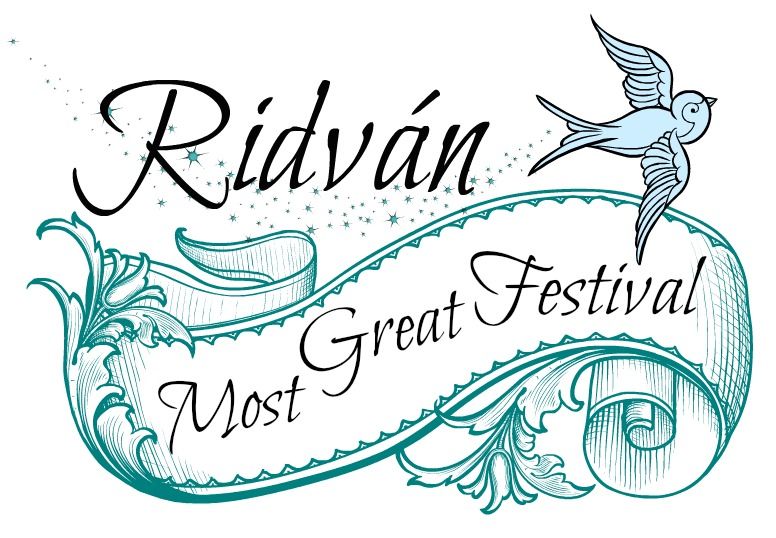The Bahá’í faith, a melting pot of spiritual enlightenment and divine revelations, celebrates numerous festivals throughout the year, but none hold a candle to the radiant significance of the Ridván Festival. Observed annually for twelve days, from April 21 to May 2, Ridván represents the inception of Bahá’u’lláh’s prophetic mission, and encapsulates the quintessence of unity, love, and divine guidance. It is during this splendid period that followers of the Bahá’í faith commemorate the moment when Bahá’u’lláh revealed His identity as the Promised One of all religions, an event of profound spiritual significance that bears monumental consequences for the faith. This article delves into the intricate tapestry of teachings engendered by this sacred festival, illuminating its essence, principles, and the vibrant symbolism intertwined within its observance.
To comprehend the profundity of the Ridván Festival, one must first embark on a journey through the historical landscape of the Bahá’í faith. The narrative unfurls in the spring of 1863, under the canopy of a verdant garden in Baghdad, a veritable oasis of serenity amidst a tumultuous world. It is here, in the garden of Ridván, that Bahá’u’lláh declared His mission, likening the event to a flower blossoming in the desert or a star igniting in the silent void of the night sky. Just as the desert flower emerges vibrant and alive, its beauty became a beacon for truth-seekers, so too did Bahá’u’lláh’s proclamation inspire countless souls to embark on a journey towards spiritual awakening and universal brotherhood.
The festival symbolizes not only the declaration of Bahá’u’lláh but also acts as a compelling metaphor for the human soul’s awakening and spiritual evolution. The twelve days of Ridván reflect the twelve months of the year, each day echoing the celestial call for unity, justice, and peace among humankind. Followers engage in prayers, gatherings, and celebrations that empower them to reflect on the significance of Bahá’u’lláh’s teachings, forging bonds of camaraderie that transcend geographical, cultural, and social boundaries.
In the Bahá’í community, Ridván embodies the principles of love and unity, serving as a clarion call for adherents to embrace diversity while cultivating fellowship. Each gathering is an opportunity to revisit the core tenets of the faith, emphasizing that the world is but a single homeland where all individuals share a collective destiny. The echoes of proclamations made during this festival resonate deeply within the fabric of Bahá’í teachings, which extol the virtues of embracing diversity, promoting equity, and fostering a global civilization rooted in compassion.
Central to the observance of Ridván is the emphasis on personal and communal reflection. Each day is infused with distinct themes, enabling participants to delve into the layers of spiritual insight embedded within Bahá’u’lláh’s writings. Activities include devotional gatherings, in which participants immerse themselves in prayers and readings, fostering a sense of connection to the divine. The community also engages in acts of service, embodying the Bahá’í principle of selfless love towards others, forging paths of understanding and compassion within their local and global contexts.
The dynamic interplay between celebration and contemplation characterizes Ridván’s unique appeal. Through song, art, and cultural expression, participants weave a rich tapestry of spirituality and creativity that reflects the profound impact of Bahá’u’lláh’s teachings. The creativity inspired by the festival serves as a testament to the Bahá’í belief that the arts can be a medium for spiritual expression, fostering a deeper connection to both the divine and one another.
Moreover, the festival is not merely an introspective journey; it also serves as a platform for proclaiming the Bahá’í message to the wider world. As believers gather in unity to celebrate their faith, they simultaneously act as ambassadors, radiating the teachings of Bahá’u’lláh. This duality is articulated in the notion that every festivity is an opportunity for outreach, whereby followers can share principles of social justice, equality, and moral fortitude, illustrating the modern relevance of Ridván’s teachings.
The unique nature of Ridván lies in its encapsulation of the Bahá’í vision of a unified world—a world that acknowledges its disparities while striving for reconciliation and harmony. Bahá’u’lláh’s assertion that “the earth is but one country, and mankind its citizens” reverberates throughout the celebrations of Ridván. This universal ethos permeates the gatherings, urging participants to transcend individualistic perspectives and embrace a collective consciousness that champions equality, justice, and love.
As the twelve days draw to a close, the climax of the Ridván Festival culminates in the election of local and national assemblies, marking the democratic engagement of the Bahá’í community. This democratic process, inherently connected to Bahá’u’lláh’s vision of consultative governance, underscores the importance of collective decision-making. It demonstrates the faith’s commitment to fostering a sense of agency among its followers, empowering them to be active participants in shaping their communities and the world at large.
In conclusion, the Ridván Festival is not merely a historical commemoration; it is a powerful reminder of the transformative impact of Bahá’u’lláh’s teachings. It beckons individuals to embark on journeys of spiritual exploration, urging them to embrace the principles of unity, love, and service as guiding lights in their lives. By weaving together the threads of history, spirituality, and community, Ridván continues to flourish as a beacon of hope—a vibrant expression of the Bahá’í quest for a united humanity, flourishing in harmony and peace. In a world often fractured by divisions, this festival stands as a testament to the potential for compassion and connection to prevail, inviting all to partake in the garden of divine love where the blossoms of unity and peace bloom eternally.
